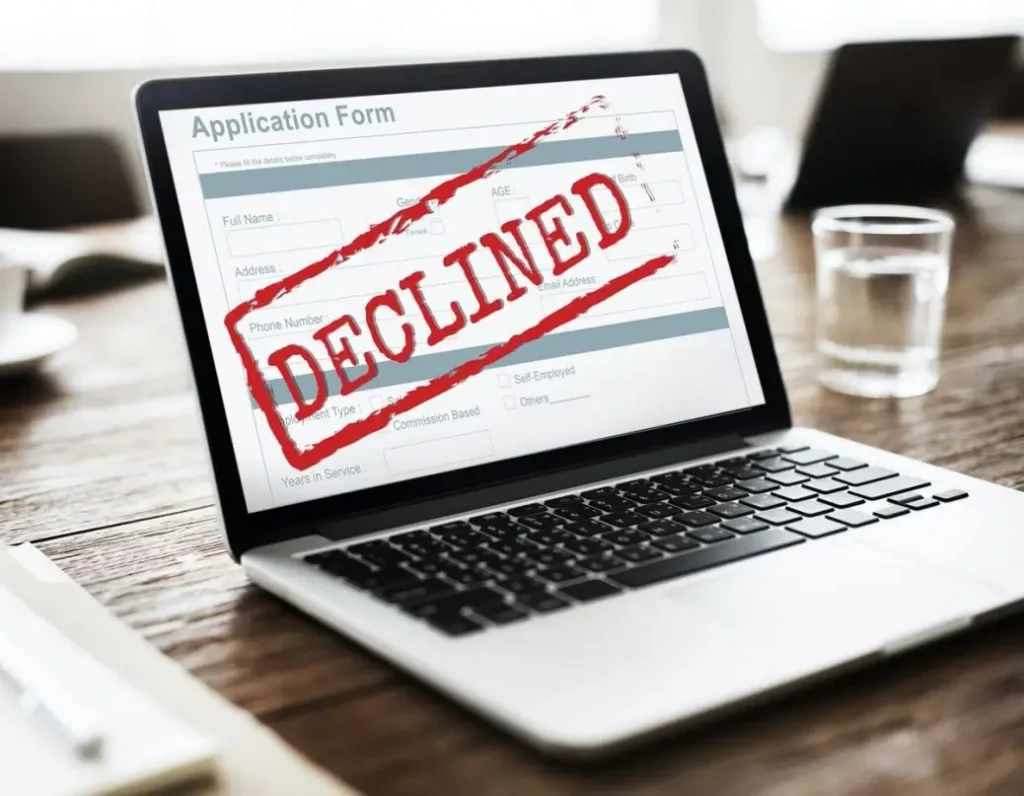
Are you planning to apply for a business or a visitor visa and visit the United States, but you fear that your application won’t meet the requirements? In this article, we tackle the main reasons for visa denial and go over the small mistakes that can result in refusal.
Getting a visa is the first step of your journey to the United States. Before you start getting yourself ready for traveling for business, pleasure, or medical purposes, you’ll need to obtain your U.S. visitor visa also known as a B visa. There are three types of this visa: B1 business visa, B2 tourist visa, and B1/B2, a combination of the two. However, you should keep in mind that there’s a possibility of having your visa application denied. In order to avoid that, take a look at the following list of the most common reasons for visa denial.
The first mistake you can make in the visa application process is applying for a visa which does not suit your travel purposes. You might be eligible for a visa on the basis of your financial situation, background or provided documentation, but the purpose of your travel may not be in accordance with the visa type you chose.
Obtaining a visitor (B) visa requires you to submit the application with supporting documentation—and to do it on time! Gathering the necessary documents before your interview and collecting everything that’s needed while you’re in a time crunch can be stressful, and you could easily forget one of the important forms. Insufficient or incorrect information on your application will undoubtedly lead to visa denial. The Consular Officer will spot any mistake. We recommend allowing our visa consultants to guide your steps through the entire process.
Having an immigrant intent means that you plan to stay in the United States longer than 6 months, which is the allowed duration of stay on a nonimmigrant B visa. If you intend to go to school, look for a job, apply for a Green Card, or anything else which implies staying in the country longer than the allowed period, you might want to consider applying for an immigrant visa.
You need proof that you have a reason to return to your home country after your U.S. visit. This usually includes family ties (spouse, children, parents), the property you own, or a job you have to return to. This condition is closely related to the one mentioned above—you need to prove that you have a nonimmigrant intent.
During your visa interview, you should be honest and as relaxed as possible. In case you’re not proficient in English, you can always ask for the interpreter. However, being rude, lying to the officer, and being unable to properly communicate with them will affect your visa approval chances. Being nervous might give off the impression that you’re hiding something. This could be easily avoided by practicing and preparing for your interview. By choosing the services provided by visa consultants, you also benefit from a mock embassy interview and get live feedback on your performance to get you ready for the real deal.
If you had a U.S. visa before and overstayed, you won't be eligible for a B visa on the basis of unlawful presence in the United States. In case you overstay your visa between 180 days and one year, you won't be eligible for a visa for 3 years after departure from the United States. If you overstay your visa for one year or longer, you won't be eligible for 10 years after your departure.
According to the Immigration and Nationality Act (INA), other ineligibilities relevant to the nonimmigrant visa include health-related issues, having a criminal record, and security issues. Anyone who presents any type of risk to the United States and its citizens will be found ineligible for a visa.
The Embassy or Consulate you apply at will notify you whether your application has been approved or denied. In case of visa refusal, you will learn about the section of INA which applies (the reason for denial). If your visa has been denied because of the incomplete application, submitting a new one won’t be necessary. You will only need to provide the necessary documents as soon as possible. Thus, you won’t have to pay the visa application fee again. In every other instance, the visa application fee is a nonrefundable application processing fee and you’ll have to make a payment again.
Now you can avoid unnecessary expenses and save yourself the trouble. Let visa online consultants review your case and make sure that everything is according to the U.S. visa requirements.
Disclaimer: https://visaexpress.us.com is not affiliated with the United States Department of State (US DOS), the United States Department of Homeland Security (US DHS), the United States Citizenship & Immigration Services (USCIS), or any other United States government agency. Neither VisaExpress.us.com nor its employees claim to have any special knowledge of immigration law or procedure. Listed purchase prices for application preparation assistance services do NOT include any government application, medical examination fee, filing, or biometric fees. The applications completed using our service are available as blank forms for free on USA Government websites. We are a private, internet-based travel technology service provider dedicated to helping individuals travel to the United States. If you do not wish to utilize our services, you may apply directly at travel.state.gov or at uscis.gov.